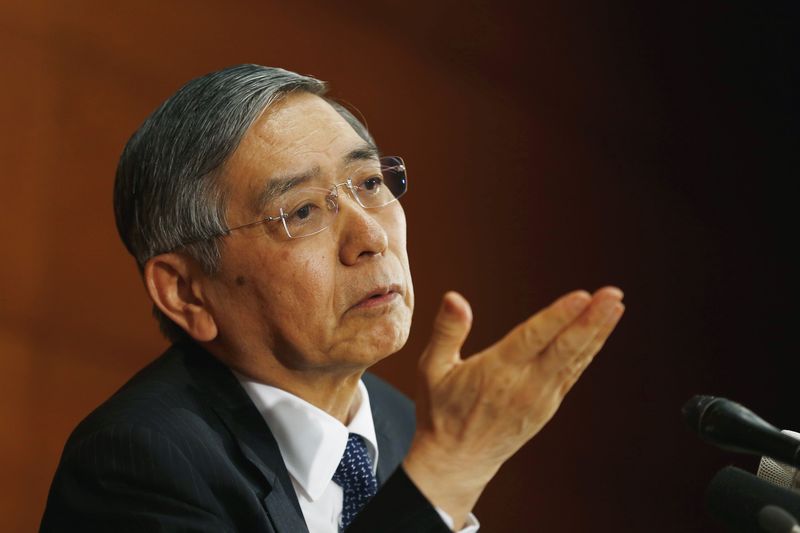Investing.com - USD/JPY snapped back from 110.67, its lowest level since October 2014, sparking speculation that the Bank of Japan (BoJ) had intervened in currency markets on Thursday, while a renowned expert called for a further strengthening of the Japanese currency.
The Federal Reserve lowered expectations for rate hikes this year bringing their forecast down to two increases in 2016 compared to the previous four and dovish comments from Fed chair Janet Yellen explaining that "global economic and financial developments continue to pose risks” and disregarding the recent uptick in inflation put downward pressure on the dollar.
In this light, the USD/JPY hit the intraday low of 110.67, but a rapid bounce back to its current 111.60 sparked some speculation that the BoJ may have “intervened” in markets in order to protect weakness in the yen.
These moves also came after Japan reported on Thursday that the adjusted trade balance for February came in at a surplus of ¥170 billion, narrower than the ¥240 billion seen. In a worrying sign for the world’s third-largest economy, exports fell 4.0% year-on-year, more than the 3.1% drop forecast by analysts.
Meanwhile, GBP/JPY was trading near session highs, as investors reacted to the decision by the Bank of England (BoE) to maintain monetary policy unchanged.
The yen was boosted after the BoJ made no change to monetary policy, in a widely anticipated decision, as it assesses the economic impact of its decision in January to deploy negative interest rates.
The move, which did little to weaken the yen, has been widely criticized and has contributed to the growing view that the BoJ’s loose monetary policy measures are losing their effectiveness.
The BoJ maintained its ¥80 trillion base money target and a 0.1% negative interest rate it applies to some reserves.
But the bank also flagged weakness in exports and output due to slowing growth in emerging economies, indicating that more stimulus may be needed in the future.
The gloomy assessment of the global economy weighed on risk appetite, further boosting demand for the safety of the yen.
Much to the BoJ’s dismay, former Japanese Finance Ministry official Eisuke Sakakibara, known as Mr. Yen for his ability to influence exchange rates during the 1990s, not only called the rally in the Japanese currency to a more than one year-high against the dollar, but also expects another jump of about 6% to 105 in the second half of 2016.
“The yen’s appreciation isn’t the result of monetary policy or because Japan’s recovery is strong, it’s that the world economy has become very disorderly,” Sakakibara told Bloomberg in an interview.
This expert noted that the Chinese economy had no easy solution and pointed to the stagnation in global growth. “In that environment, the yen will necessarily strengthen,” he said, adding that “we’re in the first phase of that now.”
